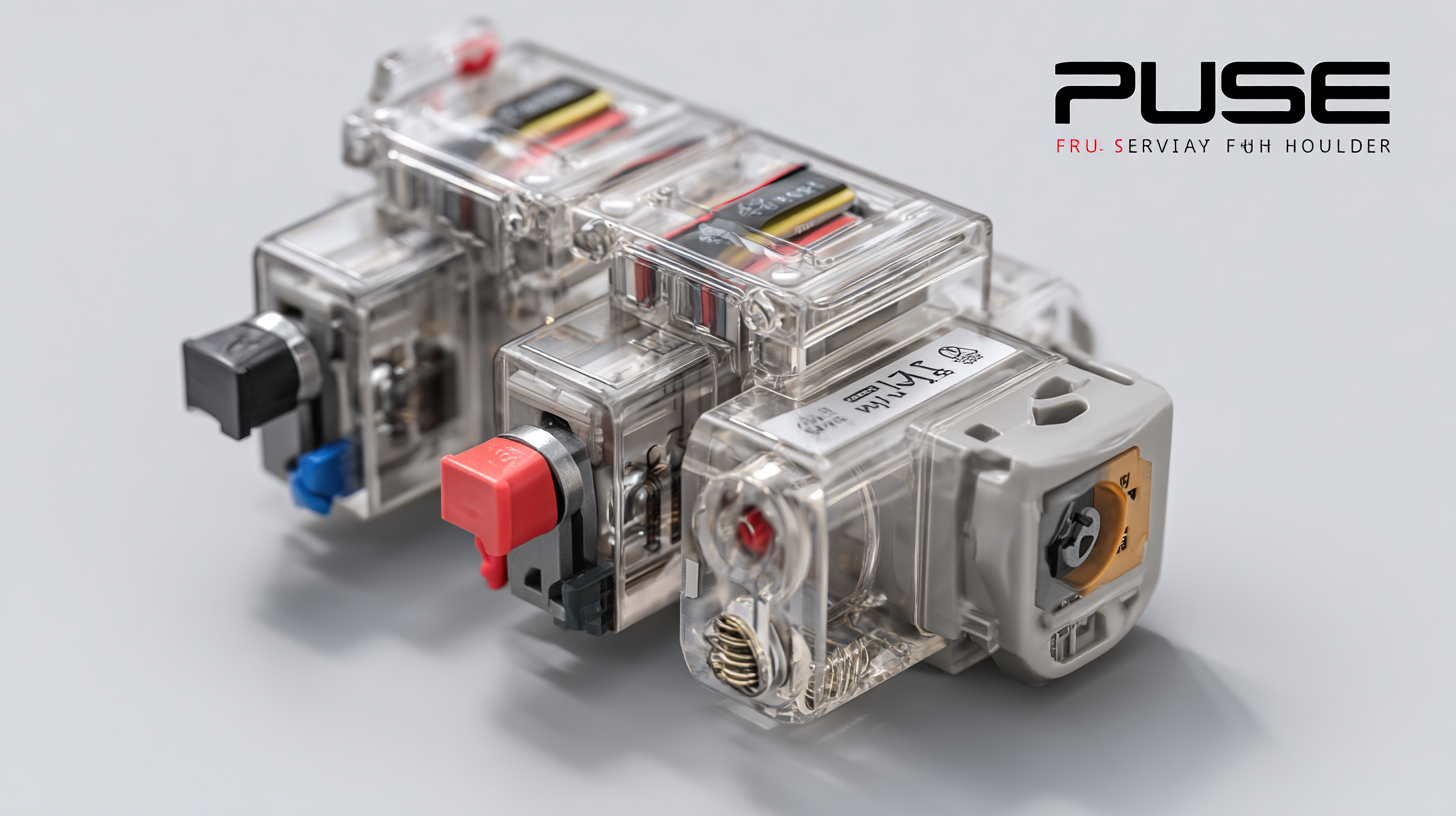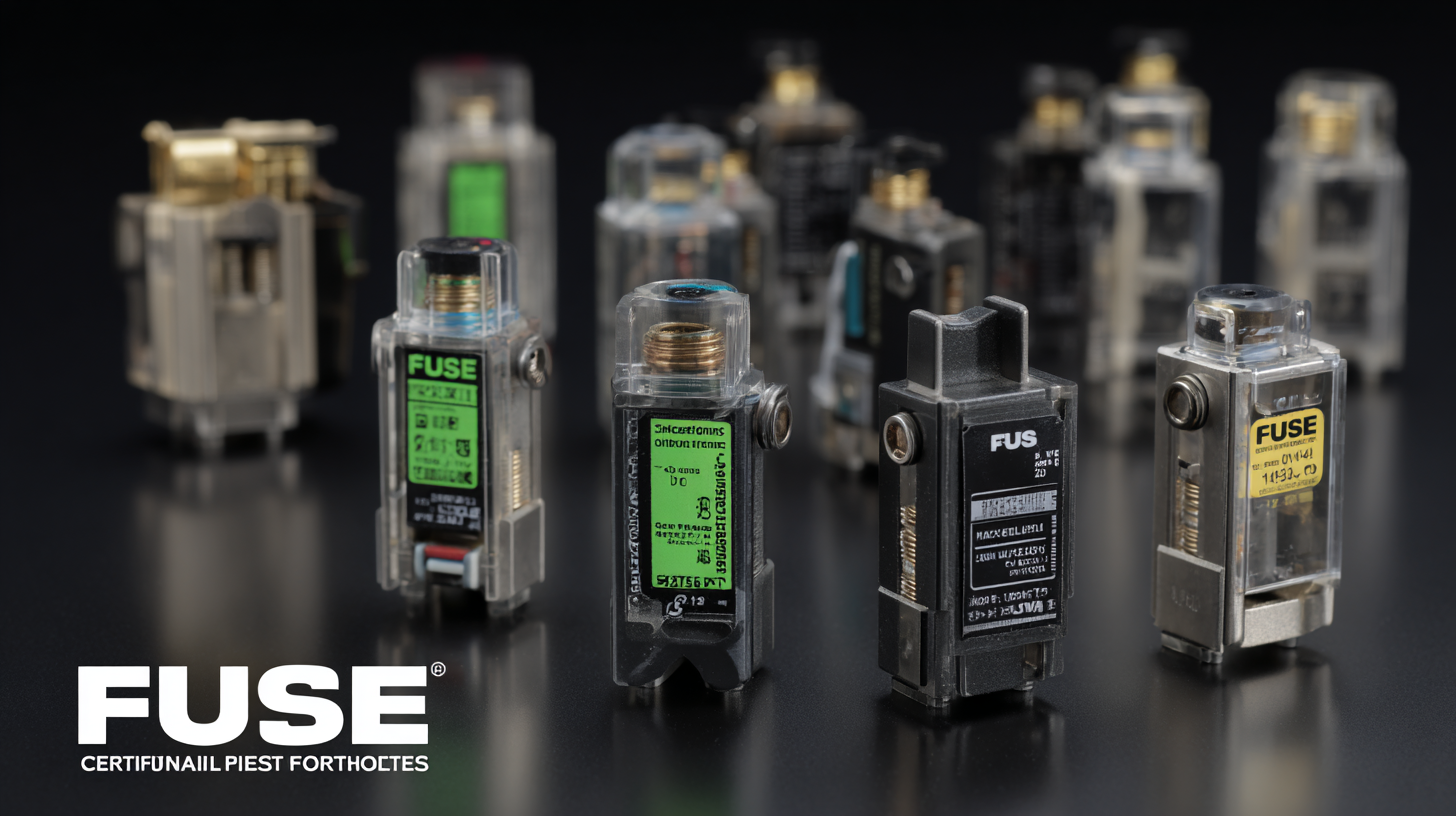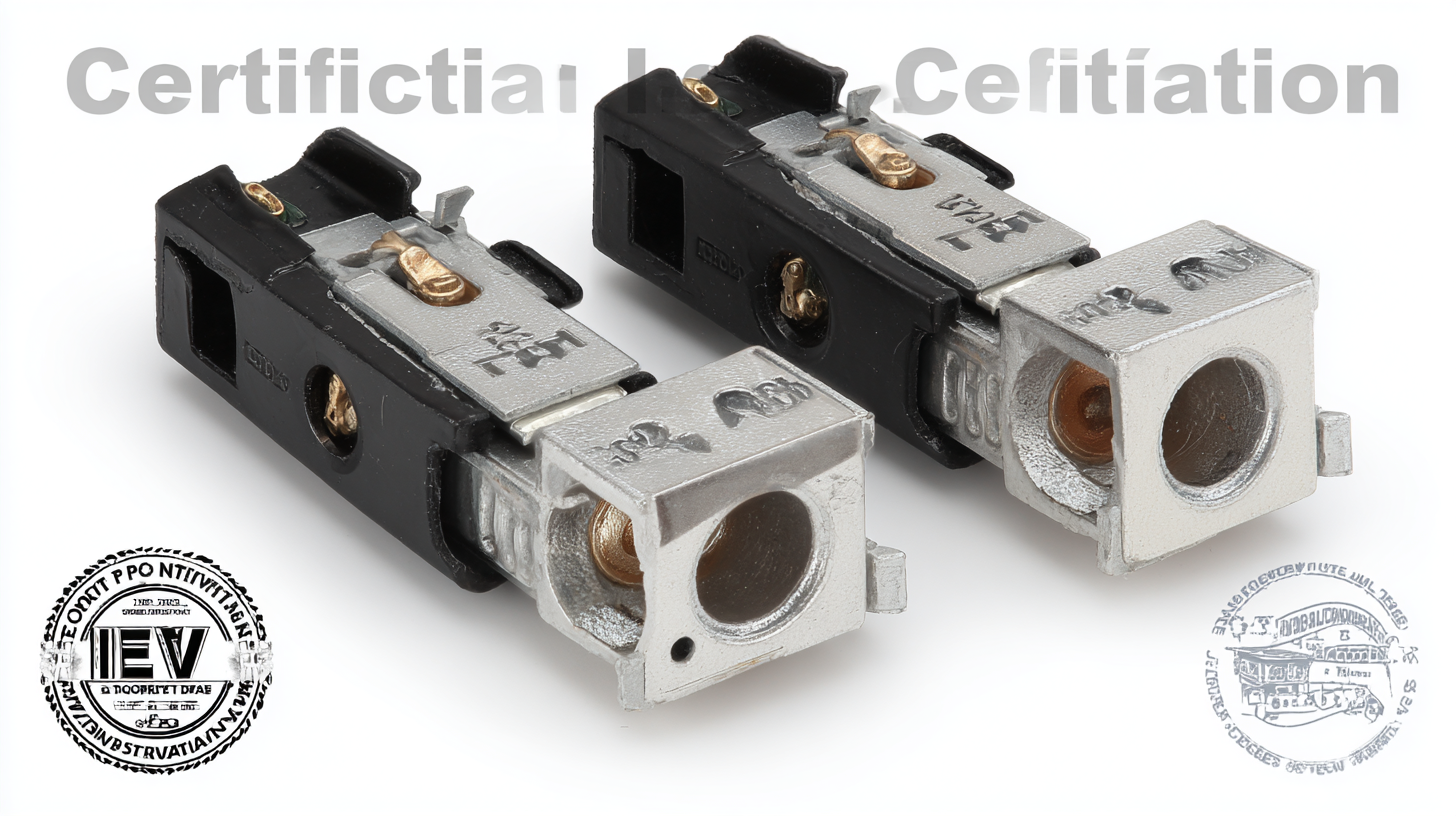
Navigating Import and Export Certifications for Best Pv Fuse Holder Products in a Competitive Market
In today's highly competitive market, the demand for reliable and efficient components like PV Fuse Holders has surged, driven by the rapid growth of the global solar energy sector. According to a recent market research report, the solar energy market is projected to expand at a compound annual growth rate (CAGR) of over 20% from 2021 to 2028, underscoring the increasing reliance on high-quality electrical components in renewable energy applications. As manufacturers focus on delivering superior products, navigating the complexities of import and export certifications becomes crucial. Ensuring compliance with international standards not only enhances product quality but also positions companies for success in the global arena. Emphasizing "Quality Focused, China Manufacturing, Global Exporting Leaders", it is imperative for businesses to stay abreast of the regulatory landscape to capitalize on the burgeoning opportunities presented by the solar market, particularly for essential components such as the PV Fuse Holder.

Understanding the Importance of Certifications in the Pv Fuse Holder Market
In the photovoltaic (PV) fuse holder market, certifications play a critical role in ensuring product safety, reliability, and compliance with international standards. With an increasing demand for renewable energy solutions, consumers and manufacturers alike are seeking assurance that their products meet stringent regulatory requirements. Certifications from recognized bodies not only validate the quality and safety of PV fuse holders but also serve as a benchmark for performance, making them crucial in a competitive landscape.

Moreover, obtaining certifications can significantly impact a company's credibility and marketability. Buyers often prioritize products that come with robust certification backing, as this reduces the perceived risk associated with safety and operational efficiency. For manufacturers, investing in the certification process can enhance brand reputation and open doors to new markets, particularly in regions with more rigorous compliance standards. Thus, understanding and navigating the certification process is essential for businesses aiming to establish themselves and thrive in the bustling PV fuse holder market.
Key Regulatory Standards Impacting Import and Export of Pv Fuse Holders
Navigating the regulatory landscape for importing and exporting PV fuse holders is essential for businesses aiming to thrive in a competitive market. Key regulatory standards impact the trade of these critical components, particularly safety and quality certifications such as IEC 60269 and UL 248. According to a recent industry report by MarketsandMarkets, the global solar fuse holder market is expected to grow at a CAGR of 12.3% from 2021 to 2026, underlining the importance of compliance to maintain market access and drive growth.
Tip: Always stay updated with regional standards and regulations. Different countries may have specific requirements, such as RoHS compliance in the EU or safety standards outlined by ANSI in the USA. Failing to meet these standards can lead to costly delays or product recalls.
Moreover, securing certifications such as ISO 9001 can enhance your credibility in the international market. This certification indicates that your products meet high-quality management standards, which can be a differentiating factor in attracting global partners. As the PV fuse holder market evolves, companies that prioritize regulatory compliance will find themselves at a strategic advantage.
Tip: Consider collaborating with a certification consultant who can guide you through the complexities of regulatory standards, ensuring your products meet both domestic and international requirements efficiently.

Analyzing Competitor Certification Strategies in the Pv Industry
In the competitive landscape of the photovoltaic (PV) industry, certification strategies are becoming increasingly pivotal for companies seeking to distinguish their products. As recent reports indicate, Chinese firms are projected to dominate nearly half of the U.S. solar panel production by next year, underlining the urgency for U.S. manufacturers to enhance their certification and compliance frameworks. With China controlling over 80% of the global solar supply chain, local companies must focus on various energy certifications to bolster their competitive stance, especially as they navigate import and export requirements.
Furthermore, innovative approaches in the industry, such as the 100% zero-waste certification achieved by leading solar panel recycling firms, highlight the growing trend towards sustainability. This action not only boosts brand credibility but also aligns with the overarching goals of the European Green Deal aimed at climate neutrality. As the European residential solar PV market was valued at approximately USD 34.74 billion in 2022 and is projected to grow at a CAGR exceeding 7% in the coming years, the importance of robust certification strategies becomes evident. Companies must leverage these frameworks to meet regulatory standards, appeal to environmentally conscious consumers, and ultimately gain an edge in this rapidly evolving market.
Navigating Import and Export Certifications for Best Pv Fuse Holder Products
Future Trends in Certification Requirements for Pv Fuse Holders by 2025
As the photovoltaic (PV) industry continues to evolve, the certification landscape for PV fuse holders is expected to undergo significant changes by 2025. In an increasingly competitive market, manufacturers and suppliers must stay ahead of emerging trends to ensure compliance with both current and future certification requirements. One of the primary factors driving these changes is the growing emphasis on safety and reliability in renewable energy products. As a result, stricter testing standards and certification protocols will likely be introduced to guarantee that components such as fuse holders meet the evolving demands of solar technology.
Moreover, environmental regulations are also anticipated to play a crucial role in shaping certification processes. By 2025, we may see the introduction of sustainability benchmarks, which require PV fuse holders to not only perform effectively but also be produced using environmentally friendly materials and methods. This shift towards greener certifications could compel manufacturers to innovate, leading to enhanced product designs that minimize environmental impact while maximizing performance. Keeping abreast of these trends will be essential for businesses aiming to maintain a competitive edge in the photovoltaic market.
Navigating Import and Export Certifications for Best Pv Fuse Holder Products in a Competitive Market
| Certification Type | Description | Required Documents | Timeline for Certification (Months) | Future Trends by 2025 |
|---|---|---|---|---|
| CE Marking | Indicates compliance with EU safety and environmental standards. | Testing reports, technical documentation. | 3-6 | Increased focus on sustainability and energy efficiency. |
| UL Certification | Safety standard mainly for US products. | Product specifications, testing results. | 2-4 | Greater demand for high-efficiency products. |
| CSA Certification | Certification for Canadian market compliance. | Testing reports, user manuals. | 3-5 | Adaptations to Canadian regulations and standards. |
| ISO Certification | International quality management standard. | Quality management system documentation. | 6-12 | Focus on continuous improvement and customer satisfaction. |
| RoHS Compliance | Restrictions on hazardous substances in electrical products. | Material declaration, test reports. | 1-3 | Stricter compliance and enforcement measures. |
Data-Driven Comparison of Certification Costs and Market Access Challenges
In today's competitive market, navigating import and export certifications has become pivotal for businesses looking to establish themselves in the best PV fuse holder segment. Data reveals that businesses often face significant barriers to market entry, stemming from the complexities of compliance with international certification standards. A recent report indicates that up to 70% of new market entrants cite certification costs and processes as a primary hurdle, highlighting the urgent need for a structured approach to understanding these challenges.
Furthermore, as artificial intelligence continues to reshape industries, its implications extend even to the realm of import and export certifications. Reports suggest that harnessing AI can streamline the compliance process, reducing the time taken for certifications by nearly 30%. By leveraging data-driven methodologies, stakeholders can not only make informed decisions but also gain a competitive edge in accessing markets. This evolution underscores the need for a robust framework that integrates technology into certification processes, enabling better market access while simultaneously mitigating costs.
